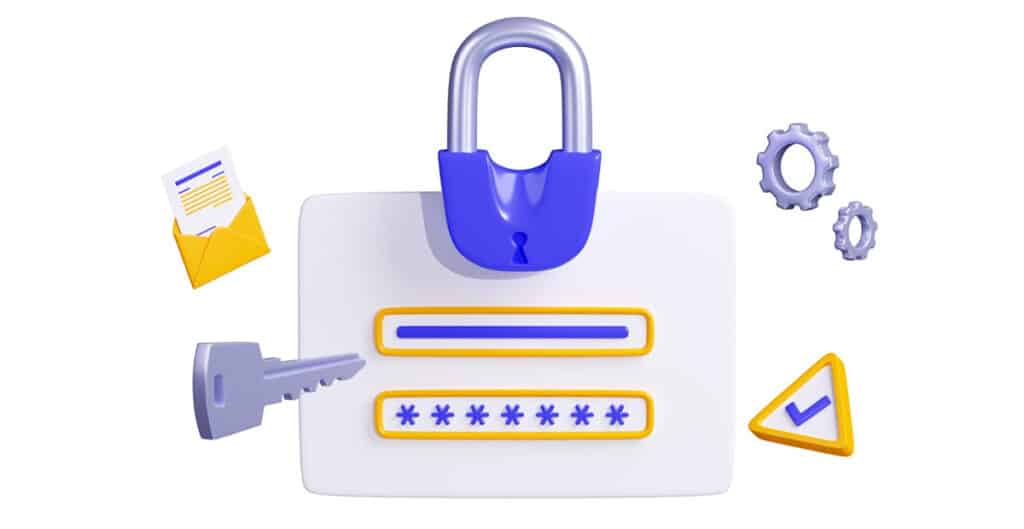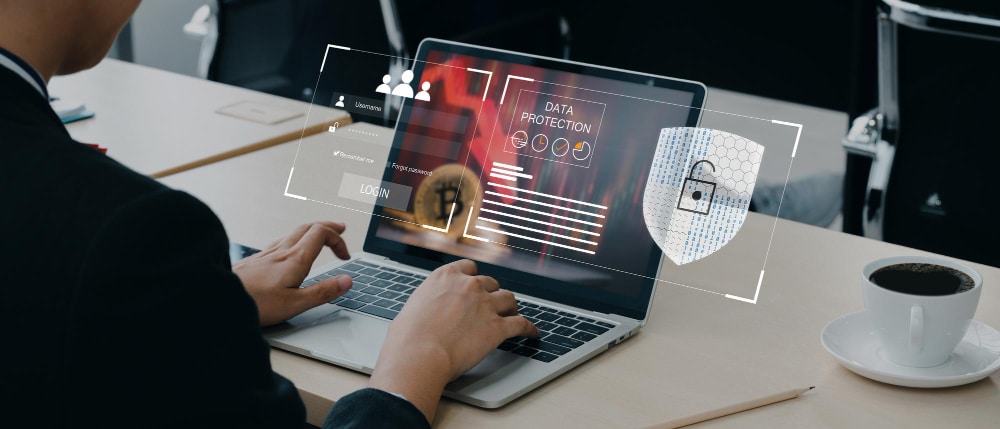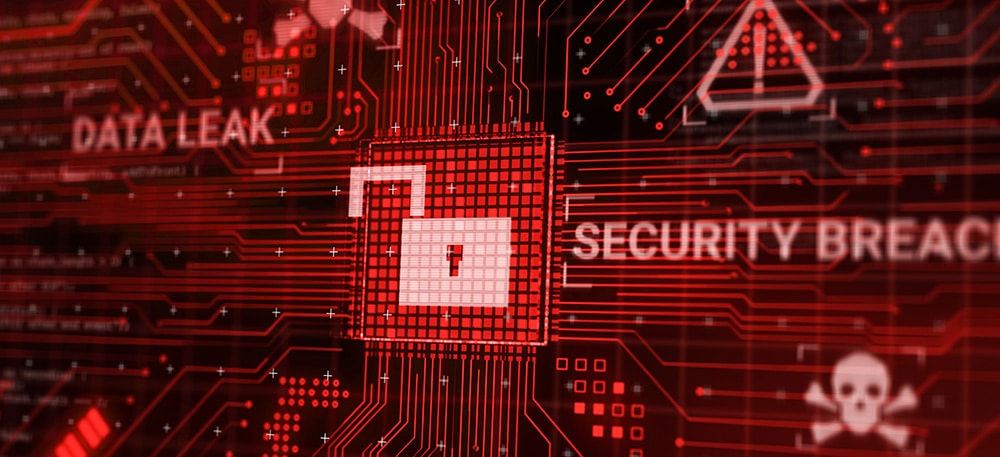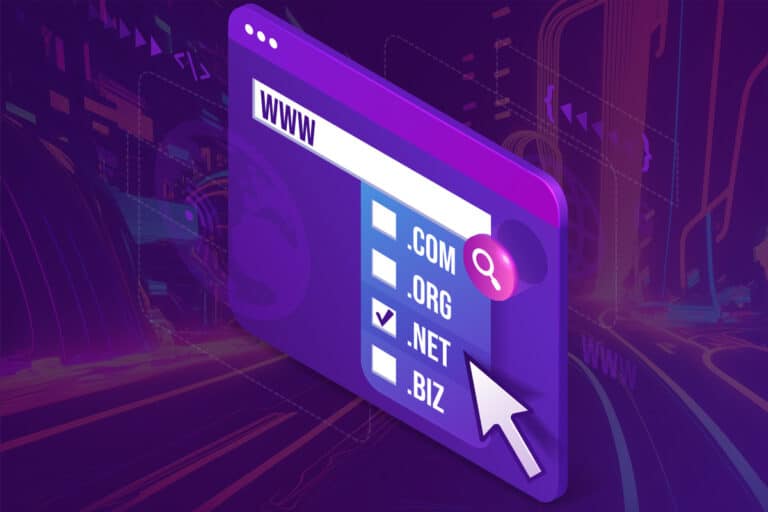Assessing Your Security Needs
It is important to evaluate your website’s security requirements before moving forward with any security improvements. To do so, you must first learn what information on your website needs protection and what threats may befall it. If you do this, you’ll be able to choose the right website security solutions within your financial constraints.
1. Identify the Types of Data You Need to Protect
- Information about your consumers that might potentially be used to identify them (names, email addresses, phone numbers, and financial information)
- Employee and user passwords and other private data
- Things like patents, designs, and confidential information are all examples of intellectual property.
- Strategies for promoting products and records of product sales
2. Understand Potential Risks to Your Website
- Malware and virus attacks: In spite of how common malware and virus attacks have become, the disruption they may bring to our digital life is still significant. To those who haven’t already, cyberattacks constitute a very real danger that has to be taken into account. It is crucial to have the proper software installed so that we and our gadgets are safe from harm. Whether it’s a ransomware assault or something more subtle like malware, we need to be on guard at all times and use every tool at our disposal to prevent damage. Taking preventative measures rather than responding to problems is more efficient and less draining.
- Cross-site scripting (XSS) attacks: In a world where cybercriminals appear to be growing more sophisticated in their attacks, it is crucial to take precautions to avoid being victimized. While most people think of hackers when they hear the term “internet crime,” cross-site scripting (XSS) assaults pose a much greater risk. In short, these attacks occur when malicious actors exploit the usage of user input that has not been checked. Because of this, cookies, session tokens, and other forms of private data may be corrupted or accessed without permission. Although cross-site scripting (XSS) attacks are tricky to spot and prevent, you can strengthen your cybersecurity defenses against them by doing things like keeping your web browser and plugins up to date.
- SQL injection attacks: SQL injection attacks are often underestimated because of this. It might not seem like much at first to inject some malicious code into a website’s query and see where it leads. Yet, if this happens, it might lead to disastrous repercussions such as unauthorized access to private information, loss of important files, or tampering with online services. It’s shocking how quickly and easily something so basic can disrupt data security, which is why safeguarding against such assaults should always be a top priority.
- Distributed Denial of Service (DDoS) attacks: DDoS assaults, or distributed denial of service attacks, are frighteningly effective despite their apparent simplicity. Envision a hidden force linking together thousands of computers that answer to the orders of a single, unseen hacker. Once infiltrated, these gadgets behave as an unstoppable digital army, swarming servers with data until they crash under the weight of the assault. I can see why that would give any company owner nightmares; it’s a terrifying sight. Your protection against DDoS assaults is the only thing standing between a hostile actor and your precious data and resources, so be sure to have everything in order.
- Brute force attacks: Having security measures in place can be the best way to protect any website from security risks, but security measures alone may not be enough. Brute force attacks pose a serious threat to even the most secure websites since they rely heavily on automation software which is used to guess user credentials until it eventually gets access to a website. That’s why security tools like CAPTCHA (Completely Automated Public Turing test) are often put in place to prevent bots and other malicious software from infiltrating a website’s security measures. In short, if you want to truly Secure a Website from any security risks, you’ll need to be conscious of the threat posed by brute force attacks and make sure all your security solutions are up-to-date.
3. Determine Your Security Budget

According to Forbs: “One In Five SMBs Don’t Use Any Cybersecurity”, putting them at risk for data breach, and potentially subjected to high costs. in 2021, the average cost of a data breach for a small business was $25,575, while the average cost for a large business surpasses $4 million.
While these numbers may seem daunting, investing in website security is crucial to avoid these costs and to protect your business reputation and customer trust.
Evaluate your budget and prioritize security measures based on the types of data you need to protect and potential risks to your website.
4. Select Appropriate Security Measures for Your Site
- Two-factor authentication is an essential security tool to protect your website from security risks. It helps you to create secure and reliable login systems that require users to input multiple forms of authentication. By incorporating powerful security tools such as two-factor authentication with additional security measures in place, you can rest assured knowing your website remains secure no matter what security risks are out there. Without it, greater security threats could be more likely to arise and take away from the security of your website as a whole. With two-factor authentication, you’ll enjoy stronger protection and improved site security for everyone involved.
- With cyber threats rampant in today’s digital world, it is more important than ever for businesses to set up security policies regarding passwords. Strong passwords can help safeguard against security risks that come with having a public-facing business website. It is essential for businesses to develop security guidelines that require users to regularly update their passwords and make sure they follow certain security measures such as using unique combinations of letters and numbers. Password policies should also ensure the use of security tools that detect weak passwords and provide state-of-the-art encryption solutions to secure a website. In order to stay ahead of security threats, companies must make strong password policies an integral part of their overall security strategies.
- Firewall protection is like a shield for your digital devices, protecting them from malicious links and malicious software. With regularly updated versions of anti-virus software and other applications, you can easily keep your online presence safe and secure. Firewalls are crucial when it comes to avoiding malicious attacks as they help detect and filter malicious traffic. They can also block incoming malicious packets that might be trying to gain access to sensitive data. Additionally, outdated software can also put you at risk as it may have vulnerabilities that malicious actors can exploit — firewalls help protect against this by blocking access to outdated services or apps. Investing in firewalls will help ensure that your online presence stays healthy and secure against malicious threats.
- Security plugins and software: website owners should not underestimate the importance of out-of-date software when it comes to the security of their site. Security plugins and software can be a vital component in stalling out potential cybercriminals, so it is important to regularly monitor and update your software. Some security plugins come equipped with notifications that will alert site owners when changes have been made or out-of-date software is detected, allowing website owners to quickly take action – saving valuable time in the process. Investing in security plugins and software should be a priority for any website owner wanting to protect their site from malicious actors.
- Website backups: Ensuring a website’s availability is important to any business that depends on it. That’s why backups are essential for every website. Most website platforms provide tools to save periodic backups and store them in external servers for security purposes – this is the best way to secure a website and all its related data. Regular backups ensure that all critical information is stored in a safe place, eliminating the risk of losing data in case of a technical issue or cyber-attack. Backing up your website will give you peace of mind so that you can focus on developing your online presence with confidence and assurance.
- SSL encryption is an essential online security measure used by businesses to keep customers’ data secure. SSL certificates contain important information such as a unique ID, expiry date, and ownership details which are all securely encrypted. SSL certificates ensure that only legitimate websites have access to user data, reducing the risk of cyber-attacks and identity theft. SSL encryption has become especially vital for e-commerce websites since it protects credit card numbers and other sensitive customer data. SSL technology also helps ensure that website content is not tampered with during transmission, providing an additional layer of security. By ensuring the safety of user data, SSL encryption enables customers to trust in the security of their transactions when visiting a website or making purchases online.
Keeping your secure site is kind of like making sure the doors and windows are locked in your home. It’s one of those things that need to do, but sometimes it’s easier said than done. Assessing your security needs makes sure that nothing is left open to security issues and risks. While the cost of adding security measures can be pricey, the consequences of a data breach or other security incident can be way worse — and much more expensive. Implementing secure measures for your website is worth every penny!
Choosing a Secure Web Hosting Service Provider
Choosing a secure hosting provider is a crucial step in making your website secure. Your hosting provider is responsible for the security of the server that hosts your website, so it’s important to evaluate hosting providers based on their security features, understands the different types of hosting available, and ask the right questions when selecting a hosting provider.

1. Evaluating Hosting Providers Based on Security Features
- Look for providers that offer features such as firewalls, DDoS protection, and SSL encryption.
- Check if the hosting provider has a reliable backup system in place and the ability to quickly restore your website in the event of a security breach.
- According to a survey by Netcraft, in December 2022, the most popular web hosting providers were Amazon Web Services, Google, and Cloudflare.
2. Understanding the Different Types of Hosting Available
- Shared hosting: allows business websites to be hosted online by web hosts, offering businesses a cost-effective way of having an online presence. Rather than a business having to purchase its own expensive web hosting package, it can opt to share resources with other business websites on the same server, thus reducing the overall costs for everyone. With shared hosting you get all the features and benefits that are commonly associated with running a website without having to fork out for extra disk space or bandwidth; this makes it ideal for business owners who want to keep start-up costs low whilst taking advantage of the many benefits associated with operating a website.
- Dedicated hosting: For business owners who are looking for the utmost in website security, dedicated hosting is an ideal solution. With this option, business owners can rent their very own server to be used exclusively for their business website. This not only provides much better security than shared web hosts, but it also offers the business more control over their site’s resources and performance. Additionally, dedicated hosting allows business owners to ensure they are getting exactly what they need as far as storage and certain other services that may be important to their particular business operations. In conclusion, dedicated hosting offers business owners with a secure website with tailored performance and services that may not be available with other web hosts.
- Virtual private server (VPS) hosting: If you’re looking for the best of both worlds, VPS hosting may be the perfect solution for your website. It offers much more control and flexibility than shared hosting, but without the cost associated with a dedicated server. With VPS hosting, you can secure a website better on top of any potential security issues. You can customize and configure the environment so it meets your specific requirements by using your own choice of performance-optimized hardware and software elements. Additionally, you can scale resources up or down depending on your changing needs over time. All in all, VPS provides a great hybrid option between shared and dedicated hosting that will help keep websites safe while providing reliable uptime and speed.
- Managed hosting is an ideal web host for businesses or individuals who want peace of mind knowing that their site’s security and any IT-related issues are taken care of. With managed hosting, the web host provides ongoing monitoring and maintenance of your website, so you don’t have to worry about managing the technical aspects yourself. What’s more, many web hosts also offer additional tailored services such as analytics report generation, web design support, and online marketing consultancy. Ultimately, with managed hosting, you’ll have access to a scalable, reliable infrastructure as well as an expert support team available to address any web-related challenges.
3. Questions to Ask When Selecting a Hosting Provider
- What security features does the hosting provider offer?
- What are their backup and disaster recovery plans?
- How often do they update their software and servers?
- Do they provide 24/7 customer support?
- What is their uptime guarantee?
- What is their pricing model?
By evaluating hosting providers based on security features, understanding the different types of hosting available, and asking the right questions, you can choose a secure hosting provider that meets the unique security needs of your website.
Creating a Strong Password Policy
One of the most effective ways to make your website secure is to implement a strong password policy. A strong password policy can prevent unauthorized access to your website, protect your data, and reduce the risk of security breaches.
To create a strong password policy, it is essential to understand the importance of strong passwords, tips for creating secure passwords, and how to implement a password policy for employees and users.

Importance of Strong Passwords
- According to a report by Verizon, 82% of data breaches are caused by Human elements, including Social Attacks, Errors and Misuse relating to weak, same password or stolen passwords.
- A strong password (by TechTarget) is a combination of upper and lower case letters, numbers, and symbols, making it more difficult to crack.
- Using strong passwords is an easy and cost-effective way to improve your website’s security.
Tips for Creating Secure Passwords
- Use a combination of upper and lower case letters, numbers, and symbols.
- Avoid using personal information such as your name or birthdate.
- Use a password manager to generate and store complex passwords.
- Consider using passphrases instead of passwords, as they are easier to remember and harder to crack.
- Password Guidelines and Best Practices for 2020.
Implementing a Password Policy for Employees and Users
- Develop and communicate a clear password policy to employees and users.
- Require users to change their passwords regularly.
- Limit the number of login attempts to prevent brute force attacks.
- Enforce password complexity requirements.
- Use two-factor authentication for an added layer of security.
By implementing a strong password policy, you can significantly reduce the risk of security breaches and make your website more secure.
Installing Security Plugins and Software
When it comes to making your website secure, installing security plugins and software is an important step. Security plugins and software can add an extra layer of protection to your website and help prevent security breaches.
To ensure the effectiveness of these tools, it is essential to understand the different types of security plugins and software available, the best practices for installation and configuration, and how to maintain and update them.

Overview of Security Plugins and Software Available
- Firewall plugins and software: Protect against common attacks and malicious traffic.
- Malware scanner plugins and software: Scan your website for malware and vulnerabilities.
- Login security plugins and software: Protect against brute force attacks and unauthorized logins.
- SSL plugins and software: Encrypt your website traffic to protect against data theft.
- Backup plugins and software: Back up your website and database regularly to protect against data loss.
Best Practices for Installation and Configuration
- Choose reputable plugins and software from trusted sources.
- Ensure that the plugins and software are compatible with your website platform and version.
- Regularly update the plugins and software to stay protected against new threats.
- Follow the installation and configuration instructions carefully to ensure that the plugins and software are set up correctly.
- Set up alerts and notifications to stay informed about potential threats.
Maintaining and Updating Security Plugins and Software
- Update the plugins and software regularly to stay protected against new threats.
- Monitor the plugins and software for any errors or performance issues.
- Regularly review your security logs to identify potential threats.
- Consider using an automated solution to maintain and update your security plugins and software.
By installing and maintaining security plugins and software, you can add an extra layer of protection to your website and help prevent security breaches.
Regularly Backing Up Your Website
Regularly backing up your website is an essential part of making it secure. Website backups can protect you from data loss due to security breaches, server crashes, or other unforeseen events. To ensure the effectiveness of your backups, it is important to understand the importance of website backups, best practices for website backups, and how automated backup solutions can help you keep your website safe.

Importance of Website Backups
- According to a report by Small Business Trends, 58% of small businesses are not prepared for data loss.
- A website backup can help you recover quickly from a security breach or other data loss event.
- Regular backups can help you restore your website to its previous state and minimize downtime.
Best Practices for Website Backups
- Back up your website and database regularly, at least once a week or more frequently for high-traffic websites.
- Store your backups in a secure location, such as a cloud storage service or an external hard drive.
- Test your backups regularly to ensure that they are working properly and can be restored.
- Develop a disaster recovery plan that includes the steps to take in the event of a data loss event.
Automated Backup Solutions
- Consider using an automated backup solution to make the process of backing up your website more efficient.
- Some of the most popular website backup plugins for WordPress are Blogvault, UpdraftPlus, Jetpack, and BackupBuddy.
- Automated backup solutions can offer scheduled backups, automatic storage in secure locations, and easy restoration of backups.
By regularly backing up your website and following best practices, you can protect yourself from data loss and ensure that your website is always available to your users.
Implementing SSL Encryption
Implementing SSL encryption is an important step in making your website secure. SSL encryption ensures that data transferred between your website and your users is protected and cannot be intercepted by third parties.
To ensure the effectiveness of your SSL encryption, it is important to understand SSL encryption, the benefits it provides for website security, and how to choose and install an SSL certificate.

Understanding SSL Encryption
SSL stands for Secure Sockets Layer and is a security protocol that establishes an encrypted link between a web server and a browser.
According to w3techs, the Usage statistics of Default protocol https for websites is used by 81.9% of all websites.
SSL encryption ensures that sensitive data, such as passwords and credit card information, is protected and cannot be intercepted by third parties.
Benefits of SSL for Website Security
- SSL encryption helps to prevent data theft and other security breaches.
- It can improve user trust and confidence in your website, as users are more likely to trust websites with SSL encryption.
- SSL encryption can help you comply with data protection regulations, such as GDPR.
Choosing and Installing an SSL Certificate.
- Choose an SSL certificate that matches your website’s needs, such as a single-domain or wildcard SSL certificate.
- Obtain your SSL certificate from a reputable SSL provider, such as Let’s Encrypt, Comodo, or Symantec.
- Follow the SSL provider’s instructions to install the SSL certificate on your website.
- According to a report by BuiltWith, as of January 2022, the most popular SSL certificate providers are Cloudflare, Let’s Encrypt, and GoDaddy.
SSL certificates are quickly becoming an indispensable web security tool for businesses looking to keep their customer data safe, attract customers’ trust, and stay in compliance with data protection regulations. These digital certificates provide a layer of encryption that scrambles sensitive information so that even when it is transmitted across the web, it can still be trusted as secure.
A public-key infrastructure is generated during the installation process that safeguards web traffic between web browsers and web servers by continuously verifying the identity of both ends. As a result, businesses not only have the peace of mind that comes with knowing that user data is treated responsibly online but they are also equipped to build stronger relationships with customers based on a foundation of trust.
Monitoring and Responding to Security Threats
Monitoring and responding to security threats is an essential part of making your website secure. Threats to website security are constantly evolving, and it is important to stay vigilant and proactive in monitoring and responding to potential threats.
To ensure the effectiveness of your security monitoring and response, it is important to understand common website security threats, strategies for monitoring website security, and how to develop a response plan for security incidents.

Risks to Website Security: Recognizing the Most Frequent Attacks
According to a report by Verizon, the most common types of security threats are hacking, malware, and phishing.
Other common threats include DDoS attacks, SQL injection attacks, and cross-site scripting (XSS) attacks.
It is important to stay informed about new and emerging threats and take steps to mitigate potential risks.
Strategies for Monitoring Website Security
Use a web application firewall to detect and prevent attacks in real time.
- Monitor your website logs for suspicious activity, such as failed login attempts or unusual traffic spikes.
- Use a vulnerability scanner to identify potential security weaknesses in your website and take steps to address them.
- Set up alerts and notifications to stay informed about potential security threats.
Developing a Response Plan for Security Incidents
- Develop and communicate a clear security incident response plan to employees and users.
- Ensure that all employees and users understand their roles and responsibilities in the event of a security incident.
- Establish a clear escalation path for reporting and responding to security incidents.
- Regularly test your security incident response plan to ensure that it is effective and up-to-date.
By monitoring and responding to security threats, you can minimize the risk of security breaches and protect your website and data.
Conclusion
In today’s digital landscape, website security is more important than ever for businesses. From protecting sensitive data to maintaining user trust, website security is a crucial aspect of running a successful online business.
In this guide, we have covered several key areas of website security, including assessing your security needs, choosing a secure hosting provider, creating a strong password policy, installing security plugins and software, regularly backing up your website, implementing SSL encryption, and monitoring and responding to security threats.
To summarize the key points of this guide:
- Assessing your security needs is an important first step in making your website secure.
- Choosing a secure hosting provider can add an extra layer of protection to your website.
- Creating a strong password policy can help prevent unauthorized access to your website.
- Installing security plugins and software can add an extra layer of protection to your website.
- Regularly backing up your website can protect you from data loss due to security breaches or other unforeseen events.
- Implementing SSL encryption can protect sensitive data and improve user trust.
- Monitoring and responding to security threats is an essential part of making your website secure.
In conclusion, website security is an ongoing process that requires ongoing attention and effort. By following the best practices outlined in this guide, you can help ensure that your website is protected from security breaches and other potential threats while maintaining the trust and confidence of your users.






![Elementor: How to build a website easily and quickly [Beginner’s Guide]](https://masterwebpro.com/wp-content/uploads/2023/02/elementor-design-website-768x440.jpg)


